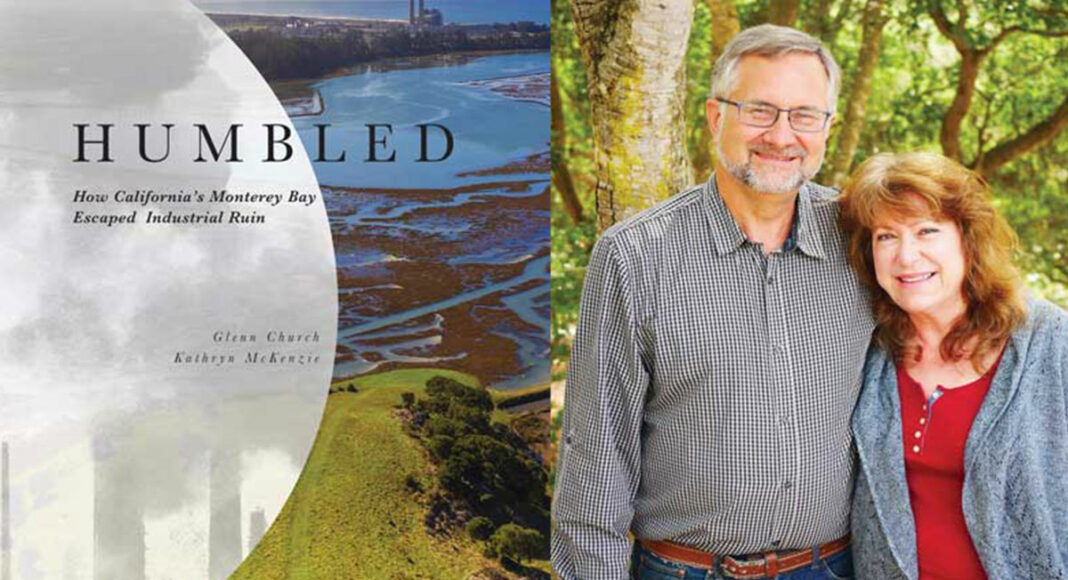He was only 6 years old, but Glenn Church vaguely remembers the construction of the power plant in Moss Landing, which was being built not far from where he grew up.
“I recall seeing those stacks go up … it was a big deal,” he said. “And now they’ve become almost like a symbol of the area.”
But the stacks also serve as a reminder of a time when big industry nearly transformed the landscape of Monterey Bay.
In 1965, Texas-based Humble Oil intended on developing 60 square miles of Moss Landing and Elkhorn Slough, with an oil refinery that could pump out 50,000 barrels a day.
A new book by Church and his wife, Kathryn McKenzie, chronicles the complicated fight between Humble Oil, local governments and the burgeoning environmental movement. “Humbled: How California’s Monterey Bay Escaped Industrial Ruin” is now available at local bookstores, including Kelly’s Books in Watsonville and Bookshop Santa Cruz.
Church and McKenzie were inspired to write the book after Church’s father, Warren Church, died in 2017, and they were sifting through his old files. Warren was on the Monterey County Board of Supervisors at the time of the Humble project.
“I was coming across all of this stuff and realized, ‘This is a really interesting story. There’s something here,’” Church said.
Church and McKenzie went to work researching for the book, digging through archives at local libraries, working with the Elkhorn Slough Foundation and getting first-hand accounts from former Monterey Herald and Salinas Californian reporters. They came up with a list of chapters, divided up the work and edited each other’s sections.
“You don’t know how that’s going to go, being a married couple and all,” McKenzie laughed. “We definitely had some interesting conversations and arguments.”
McKenzie grew up in Watsonville and Santa Cruz and attended Harbor High, where she began writing for the school newspaper. She was a journalist for many years, but “Humbled” is her (and Church’s) first major work.
“I’ve been writing my whole life, but nothing of this scope,” she said. “We had lots of rewriting to do.”
The pushback against and subsequent exit of Humble Oil from Monterey Bay had long-lasting effects, not only in stopping the refinery but on agriculture, tourism and nature, as well as air pollution laws.
“This was one of the first big battles of the modern environmental era,” Church said. “Just imagine, would the [Monterey Bay] Aquarium have been built if that had happened? Would the National Marine Sanctuary have been protected?”
Still, Church wanted to show all sides of the issue. After all, his environmentalist father initially supported the Humble project—in fact, a lot of people in the area did at the time.
“You look back and think, ‘Why would we ever do that?’” he said. “But you’ve got to understand what was happening at the time. The area was growing at a tremendous rate. Need was great. Taxes were going up. It’d be natural for them to see an untapped area and look at it to bring jobs. I get what they were probably feeling.”
McKenzie said she hopes “Humbled” will not only be informative but also inspiring for readers.
“I hope … it makes them realize how important it is to fight for what you believe in, don’t take things for granted,” she said. “When you feel something is going in the wrong direction … take a stand and fight for a goal.”












